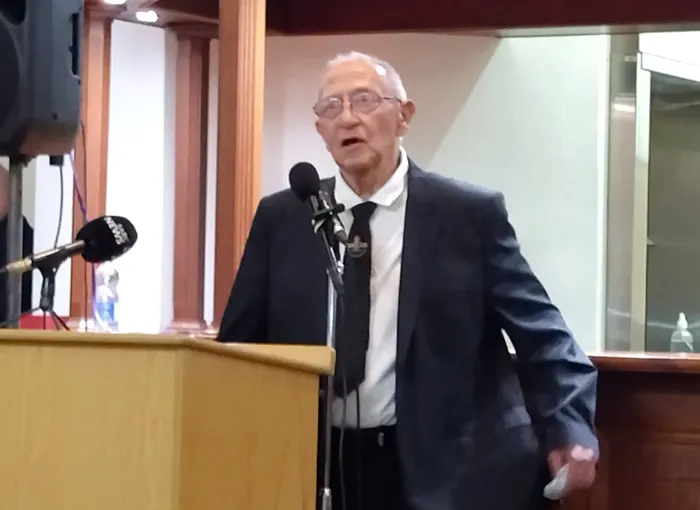Remembering the fight for equality in sport

Frank van der Horst was the Sacos president from 1982 to 1988.
The South African Council on Sport (Sacos) Western Cape launched the Frank van der Horst Exhibition at the National Library of South Africa in the Company’s Garden on Friday September 22.
According to library spokeswoman Najwa Hendrickse, the collection of archival material, including photographs, news clippings and memorabilia, is only one-third of the Sacos items owned by Mr Van der Horst, who was the president of Sacos from 1982 to 1988.
She said the future plan is to digitise the collection.
Speaking at the opening, Mr Van der Horst lamented that sport had died in many communities “giving sway to delinquent and anti-social behaviour”. He added: “Some people say that it is because Sacos is no longer there. If this is the case, then what is expected from Sacos? Do they want us to establish sports organisations in the affected communities.”
He also said that elite sport had drowned out community or neighbourhood sport. “Are we being asked to defend the still oppressed against the onslaughts of racism, classism elitism and professionalism that is money in sport? We are a movement of the people with common aims and goals. How did we fail?”
Dr Norman Maharaj, the vice president of the SA Hockey Board from 1985 to 1987; Mr Van Der Horst’s nephew, Craig van der Horst; and Dallas Haynes, a Remembering Sacos committee member, were guest speakers at the event.
Craig van der Horst said his uncle had been revered in his day as a fiery and outspoken anti-apartheid activist. “He brought a new and dynamic vision, which was necessary in his presidency,” he said.
The anti-apartheid sports organisation was established in 1973 by a small group of sport administrators representing nine federations from oppressed communities, said Dr Maharaj.
Ms Haynes noted that its main aim had been to make it possible for all national sport federations to be able to compete in international competition and not just the teams of the white-minority apartheid state.
Sacos’s slogan of “no normal sport in an abnormal society” meant sport could not be divorced from broader social issues, she said.
“It was a very unpopular idea among establishment sport circles in the 1970s who spread a message that sport and politics do not mix,” she said.
The exhibition runs until the end of November. Entry is free.








